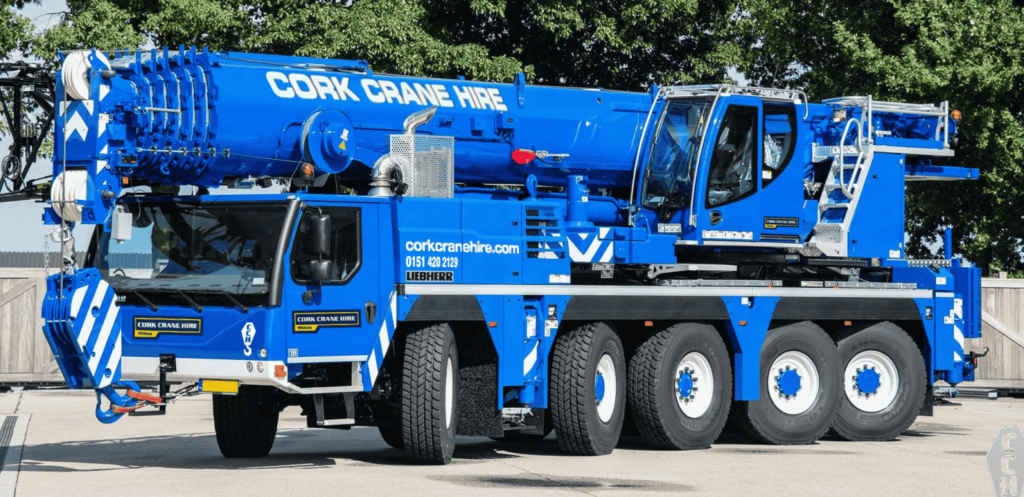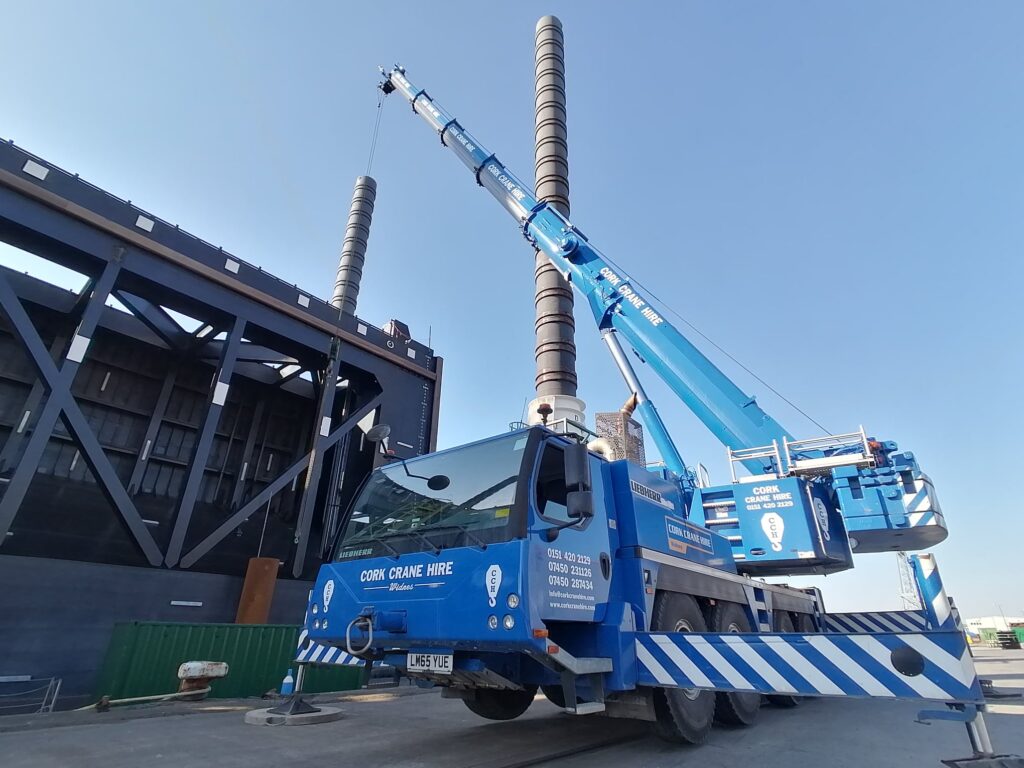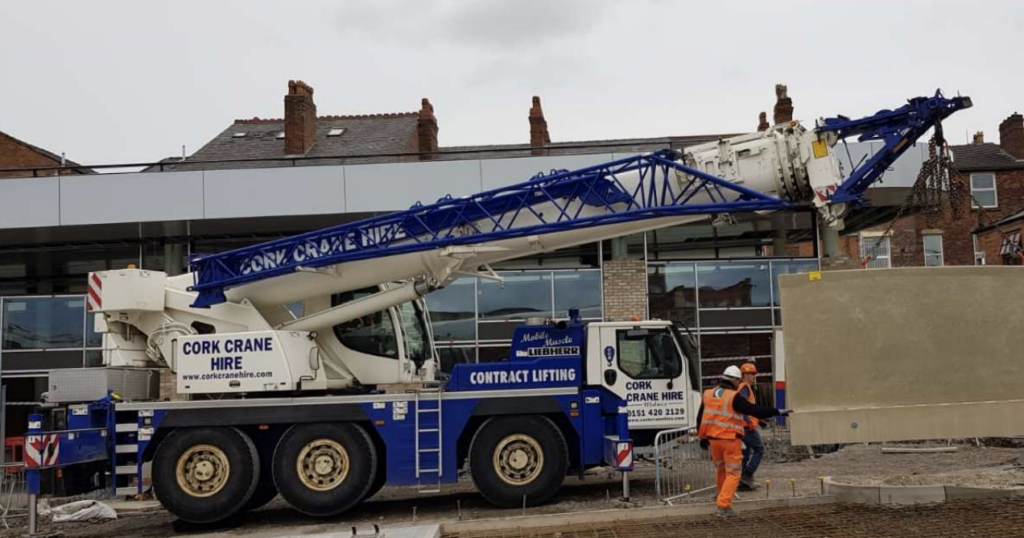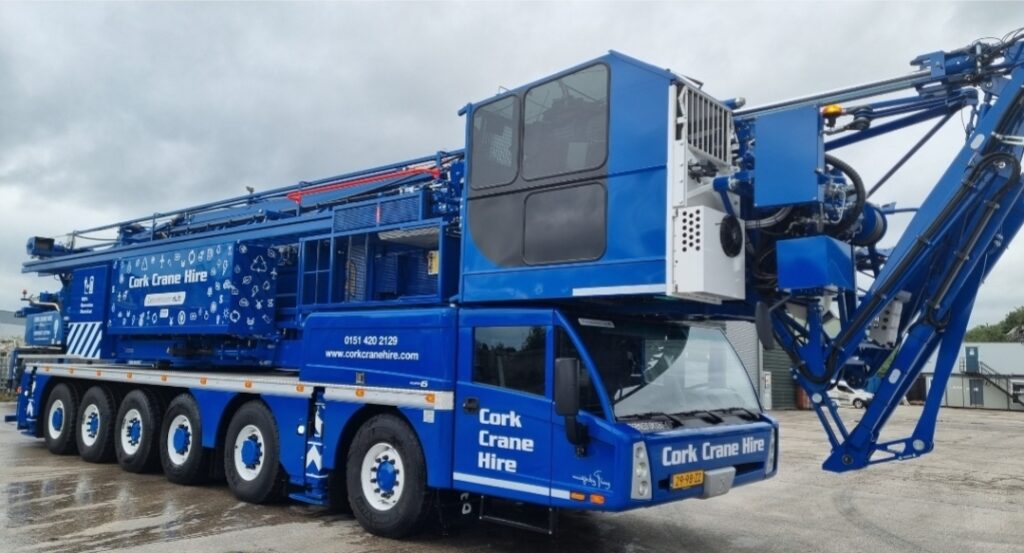What to Consider Before Hiring a Crane in the UK
Hiring a crane may seem like a straightforward task, but in reality, it involves several critical considerations especially in the UK, where safety regulations, legal compliance, and site conditions all play a significant role.
Whether you’re overseeing a residential build, a large-scale infrastructure project, or anything in between, understanding what’s required before you lift a load can help avoid delays, fines, and accidents.
In this article, we’ll break down the key factors to consider before you hire a crane in the UK, including safety, certifications, insurance, terrain, access, and permits.

Why Proper Planning Matters in Crane Hire
Before you even choose a crane or a hire company, it’s vital to understand the scope of your lifting operation. Poor planning often leads to unnecessary downtime, budget overruns, and safety risks. Crane operations are classified as high-risk activities, meaning they’re heavily regulated in the UK.
With proper planning, you will:
Ensure compliance with UK safety laws
Protect your site workers and the public
Avoid costly penalties and delays
Maximise operational efficiency
Hiring a crane isn’t just about getting equipment to a job site, it’s about securing a safe and legal lifting solution that suits your unique project needs.
Safety First – What You’re Legally Responsible For
Safety should always be your top priority. In the UK, all lifting operations involving cranes are governed by LOLER (Lifting Operations and Lifting Equipment Regulations 1998) and PUWER (Provision and Use of Work Equipment Regulations 1998). These laws apply to anyone who owns, operates, or controls lifting equipment on a job site.
Here’s what you must ensure:
A lift plan is created by a competent person
All lifting equipment is regularly inspected and certified
A trained and certified operator is used
The lifting area is clearly marked and secure
Risk assessments and method statements are in place
Cork Crane Hire takes safety seriously. Every crane hire includes a full lift plan, diverse fleet, and access to experienced, qualified operators. You can rest easy knowing your job is in safe hands.

Certifications and Qualified Crane Operators
You should never assume that every crane operator is legally qualified. In the UK, crane operators must hold valid certifications such as:
CPCS (Construction Plant Competence Scheme)
NPORS (National Plant Operators Registration Scheme)
Operators also need refresher training at regular intervals. Without these qualifications, your project could be shut down by inspectors or result in legal action in case of an accident.
With Cork Crane Hire, you don’t need to worry about vetting operators. We supply fully trained, experienced, and certified professionals for every job.

Crane Hire Insurance – What’s Covered and What’s Not
Insurance is another area that’s often misunderstood. In the event of an accident, property damage, or injury, lack of appropriate coverage can lead to serious consequences.
Typical coverage you’ll need to consider includes:
Public Liability Insurance – Covers third-party damage or injury
Hired-in Plant Insurance – Protects the crane while it’s on-site
Contract Works Insurance – Covers works being carried out on the site
Cork Crane Hire provides full public liability and LOLER-compliant cover with every hire. We also advise clients on what additional cover might be needed depending on the nature of the job.

Explore Our Services or Call 0151 420 2129 to Get Started!
Terrain and Site Access Requirements
Not all job sites are ideal for crane use. The suitability of the terrain and ease of access directly affect both the type of crane you need and how safely it can be deployed.
Here’s what to assess:
Ground conditions – Soft or uneven ground can be unsafe
Space availability – Is there enough clearance for the crane and its outriggers?
Overhead obstructions – Power lines, trees, and buildings can pose hazards
Access roads – Can the crane physically get to your site?
Assessing terrain and access is a crucial early step in crane hire planning. It helps determine the right type and size of crane, what support equipment might be needed, and whether any preparatory work is required to make the site lift-ready.
A well-prepared site reduces the risk of accidents and helps ensure the lifting operation runs smoothly from start to finish.
Do You Need a Permit to Hire a Crane in the UK?
In some cases, yes—you do need a permit to hire and operate a crane, especially if the lifting operation takes place in or near public areas. UK regulations require that any activity affecting public spaces such as roads, footpaths, or pavements—must be reviewed and approved by the local authority before it goes ahead.
Failing to obtain the correct permits can result in fines, project delays, or the suspension of works, so it’s crucial to understand what applies to your site and situation.
Permit requirements aren’t just a formality, they’re in place to ensure public safety and the smooth coordination of utilities, road users, and emergency services.
When You May Need a Crane Permit
You’ll likely need a permit if:
The crane will be positioned on or operating from a public highway or footpath
This includes pavements, lay-bys, and even some private car parks open to the public.Your lift requires partial or full road closures or pedestrian diversions
Any disruption to normal traffic flow must be pre-approved with a traffic management plan.The crane will operate near overhead power lines or utility infrastructure
Work in proximity to electrical lines or water/gas services may need special coordination with utility providers.You’re lifting over a public space
Even if the crane is set up on private land, lifting materials across a public area—such as a street or alley—may trigger permitting requirements.The site is in a congested urban zone or conservation area
Some cities and councils have stricter controls on crane operations due to noise, disruption, or preservation rules.
What the Permit Process Involves
Advance notice: Most councils require at least 5–10 working days to review and approve a crane permit application. Some complex areas may take longer.
Traffic Management Plan (TMP): You may need to provide detailed plans showing road closures, signage, barriers, and alternative routes.
Proof of insurance and safety compliance: Councils often request public liability insurance documents and a method statement for the lift.
Coordination with third parties: You might also need approval from local utility providers or emergency services, especially if the lift poses any potential hazard.
Crane permits are managed locally, and each council may have slightly different requirements, forms, and lead times. For that reason, it’s essential to check early and factor the process into your project timeline.

Why Choose Cork Crane Hire
At Cork Crane Hire, we’ve been providing reliable, safety-first crane hire in the UK for over 40 years. Whether you’re planning a one-day residential lift or coordinating a long-term construction project, we offer a full-service solution that includes:
-
Comprehensive lift planning and documentation
-
Fully insured and LOLER-compliant equipment
-
Nationwide delivery and flexible scheduling
Our team works closely with site managers, developers, and project planners to make sure every job is done right—the first time. From initial site assessment to final lift, we’re with you every step of the way.
Latest Posts
Send Us A Message
We operate nationwide in the UK
Do I need to provide my own insurance when hiring a crane?
We provide liability insurance as standard. Depending on the job, you may still need additional coverage for contract works or hired-in plant.
What certifications do your operators have?
All our operators hold up-to-date CPCS or NPORS certifications and are experienced in a wide range of environments and lift types.
Can you help us plan the lift and assess the site?
Yes! Our team will assist with full lift planning, risk assessments, and terrain evaluation before your scheduled lift.
Do you serve all areas of the UK?
Yes. While we’re based in Widnes, our crane hire services are available nationwide with rapid dispatch and flexible rental terms.
